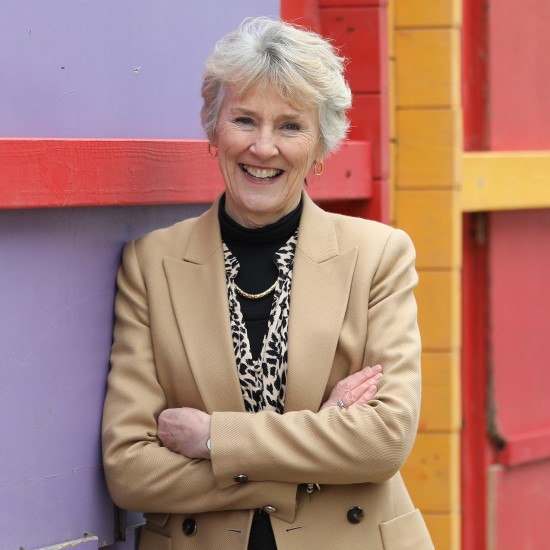“It’s not just about fans on the desk, we need a holistic approach to menopause support”
Menopause affects half of the population, yet has traditionally been a silent issue – particularly within the workplace. It’s refreshing to see conversations about the menopause are now starting to feel less taboo, but more still needs to be done.
I’ve seen first-hand the huge impact that talking to one another and sharing can make.
My mother was very open about the menopause symptoms she experienced, which were psychological as well as physical. I’m sure that her openness not only helped her own recovery, but also raised awareness for myself and others around her.
I’ve noticed over recent years that it is being talked about more freely. And with the rise of organisations like the Menopause Café – which encourages people to get together over cake and a cup of tea to talk – it’s starting to feel like we’re moving in the right direction.
But, while it is gaining much-needed attention, there’s still a way to go.
"I’ve learnt the importance of sharing and listening to one another, so we can support those going through a potentially very difficult time in their lives"
Symptoms such as fatigue, brain fog, anxiety, and sleep disturbances can significantly impact people’s engagement and wellbeing at work.
In my own experience, my main symptom of great fatigue meant I had to take some time off work while at a previous employer and at a particularly busy time for the business.
This led to a feeling of guilt at leaving others to cope, as well as embarrassment as my colleagues were younger than me and had never considered what menopause might mean.
From both my mother’s experience and my own, I’ve learnt the importance of sharing and listening to one another, so we can support those going through a potentially very difficult time in their lives.
"It isn’t just about fans on the desk - we need a holistic approach when it comes to helping our colleagues"
As well as encouraging conversation, organisations need to take practical steps to provide menopause support. It isn’t just about fans on the desk - we need a holistic approach when it comes to helping our colleagues.
At OneFamily, employees can request temporary or permanent changes to their work hours and/or work remotely to accommodate menopause symptoms.
Line managers are also encouraged to have open conversations and seek HR support when needed and we have a number of resources available to all colleagues, such as the Help@hand app which offers 24/7 GP access and mental health support.
"As an employer, we have a responsibility to create an environment that prioritises understanding and flexibility to support people experiencing the menopause"
As an employer, we have a responsibility to create an environment that prioritises understanding and flexibility to support people experiencing the menopause.
This means not only implementing policies, but also building a culture where open conversations are encouraged and support is readily available.
By taking a holistic approach, we can ensure that everyone feels valued and empowered, regardless of the challenges they may face. Together, we can make the workplace a more inclusive and supportive space for all.

More blogs from the OneFamily Leadership team
You may also be interested in:
Treasury Select Committee review of lifetime ISA launched
OneFamily has been campaigning for several years for the lifetime ISA (LISA) to be reviewed, to make it more attractive to savers.
How we’re helping disabled teens access their Child Trust Funds
We're campaigning for teens with limited mental capacity to be able to access the money in their child trust funds more easily.
How much money do you need to retire?
When it comes to saving for retirement, it’s important that you understand your options, make a solid plan and stay on top of your savings.
Is it better to save or invest your money?
When putting money away for the future, you can choose to save it in a savings account, where it will grow with interest rates, or you can invest it in an investment fund.
